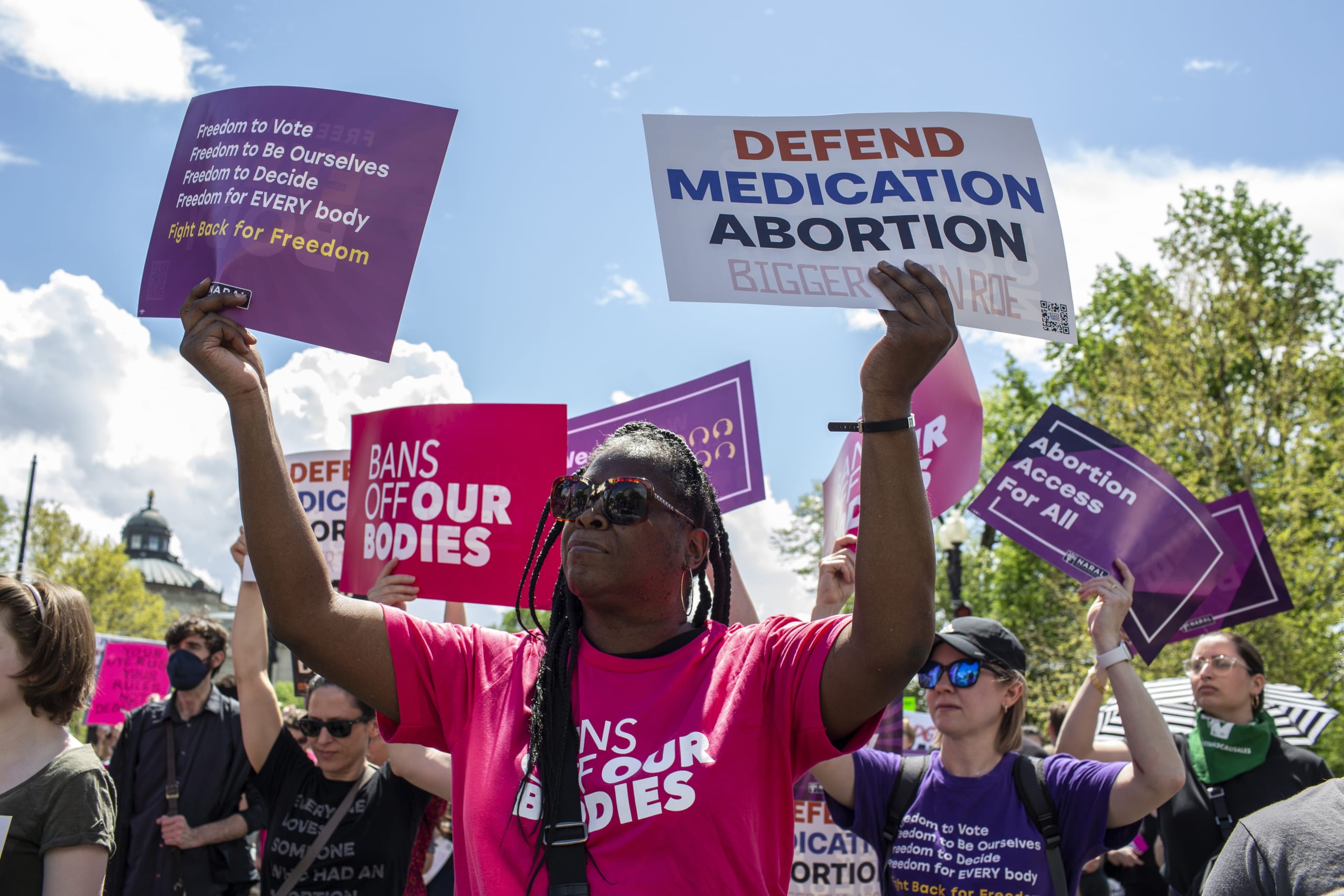We bring news that matters to your inbox, to help you stay informed and entertained.
Terms of Use and Privacy Policy Agreement
WELCOME TO THE FAMILY! Please check your email for confirmation from us.
“A national ban on mifepristone would have a devastating impact on access to abortion nationwide, and we know who will be most harmed — people working to make ends meet, especially people of color,” said Morgan Hopkins, president of All* Above All.
As the world awaits the decision from a Texas appellate court on whether pregnant women should have the right to access a popular abortion pill, reproductive health advocates are determined to fight to protect a pregnant woman’s right to the FDA-backed drug.
Last week, the Supreme Court temporarily blocked a Texas court’s decision to ban mifepristone, permitting pregnant women access to the drug for now, the Associated Press reported.
Kirsten Moore, director of Expanding Medication Abortion Access Project, said this case should have never come before the high court.
“The FDA has the authority and scientific expertise to evaluate and approve medications – not politicians, not activists, and not judges,” Moore said in a statement obtained by theGrio.
The majority of the court’s justices granted the Biden-Harris administration’s call to place a hold on the Texas court ruling.
The Supreme Court has since returned the case to the 5th U.S. Circuit Court of Appeals, which will hear oral arguments on May 17. The appellate court will then determine whether it should ban or limit the use of mifepristone.
In November 2022, the Alliance Defending Freedom, a conservative Christian organization, and several other anti-abortion advocates filed a suit against the Food and Drug Administration, alleging the federal agency lacked authority to approve the use of mifepristone, as theGrio previously reported.
As NPR reports, there’s a possibility the case could make its way back to the Supreme Court if Alliance Defending Freedom is not satisfied with the appellate court’s ruling.
More than two decades ago, the FDA approved the use of mifepristone to be taken with another drug called misoprostol. When taken together, both drugs can terminate a pregnancy up to 10 weeks, as theGrio previously reported.
However, if public use of mifepristone is prohibited, clinics will only be permitted to prescribe misoprostol — which is proven to be less effective.
Dr. Daniel Grossman, director of Advancing New Standards in Reproductive Health, said in a statement that conservatives’ efforts to ban the abortion pill have nothing “to do with health and safety” of women but “everything to do with politics.”
“Two decades of use and over 100 studies show that mifepristone is overwhelmingly safe and effective. While the Supreme Court did the right thing … access to this essential medication should never have been brought before the courts,” he argued.
If the 5th U.S. Circuit Court of Appeals upholds the lower court’s ruling, legal experts and advocates say a ban or restriction on the use of mifepristone will have devastating consequences for Black women.
Morgan Hopkins, president of All* Above All, said in a statement to theGrio that marginalized groups will be affected the most.
“A national ban on mifepristone would have a devastating impact on access to abortion nationwide, and we know who will be most harmed — people working to make ends meet, especially people of color, who already shoulder insurmountable barriers to care,” she said.
Hopkins said the Biden-Harris administration and state elected officials must “do everything in their power to ensure medication abortion access and protect patients and providers as this case plays out.”
In a previous interview with theGrio, Oriaku Njoku, executive director of the National Network of Abortion Funds, said, “Those who face economic injustices and barriers to healthcare – especially Black people, indigenous people, people of color, and people with intersectional identities,” will be hit the hardest by such a ruling.
The fight over the abortion pill is the latest in a string of conservative backed-efforts to restrict or outright ban abortion across the country.
In a statement obtained by theGrio, Jill Habig, founder and president of the Public Rights Project, said, “People should have the right to control their healthcare decisions and have access to safe, legal, and affordable reproductive care, including abortion.”
On the contrary, Lupe Rodriguez, executive director of the National Latina Institute for Reproductive Justice, said in a statement obtained by theGrio, that anti-abortion advocates disagree and aim “to ban abortion nationwide.”
“These legal challenges do so much damage in our communities; causing confusion, fear, and uncertainty about abortion care, which makes it much easier for misinformation to spread and deters people from getting the care they need,” she stated.
TheGrio is FREE on your TV via Apple TV, Amazon Fire, Roku and Android TV. Also, please download theGrio mobile apps today!

